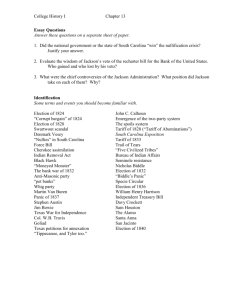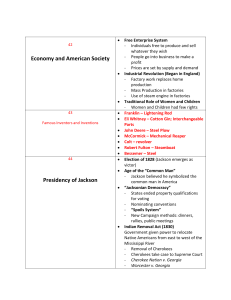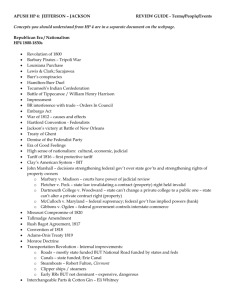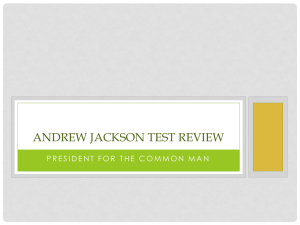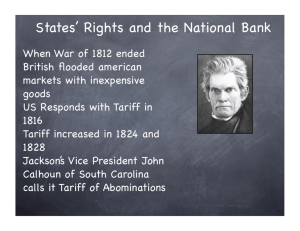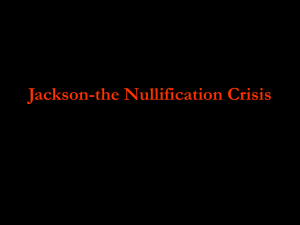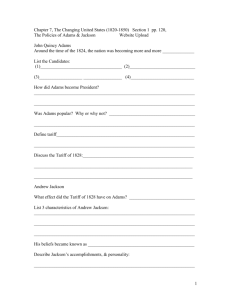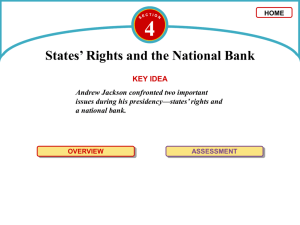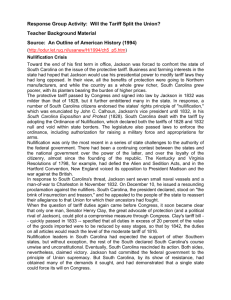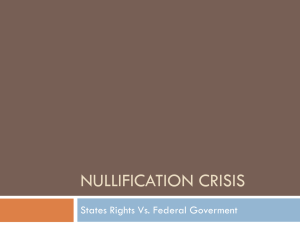Chapter 8 Section 5
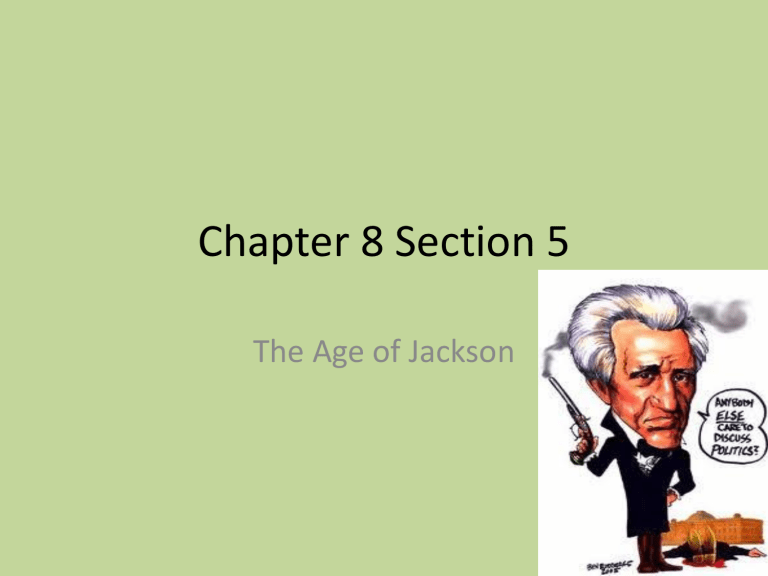
Chapter 8 Section 5
The Age of Jackson
Patronage
• Elected officials giving government jobs to friends and supporters
– Jackson made patronage an official policy of his administration
• Replaced previous
Presidential appointees with Jacksonian
Democrats
Spoils System
• Refers to loot taken from a conquered enemy
• The “loot” was jobs for party supporters
– Jackson argued that job rotation prevented a small group of wealthy, well connected people from controlling the government
• The people liked this
Tariff of 1828
• A heavy tax on imports designed to boost
American manufacturing
– Greatly benefited industrial North
– But forced many in the
South to pay higher prices for manufactured goods
Nullify
• The idea that states could reject federal laws they judged to be unconstitutional
States’ Rights
• South Carolina based their nullification threats on this
– Powers the Constitution neither gives to the federal government nor denies to the states
• Each state has its own powers that cannot be taken away
Secede
• Part of a theory that because states created the federal government, they have the right to nullify its acts and even secede, or withdraw, from the Union if they wish to
Indian Removal Act
• Authorized President
Jackson to give Native
Americans land in parts of the Louisiana
Purchase in exchange for land taken from them in the east
Trail of Tears
• The U.S. Army rounded up 15,000 Cherokees and took them on a 116 day march westward for about 1,000 miles to
Oklahoma Territory
– 1 out of every 4
Cherokee died of cold or disease
Black Hawk War
• 1832
• A warrior named Black hawk led a group of 1,000
Indians in an effort to retake their land
• Weakened by hunger and illness, most retreated to
Wisconsin Territory where most of them were chased down and killed
Second Seminole War
• Began in 1835
• Lasted 7 years
• Most Seminoles chased back to Florida where they hid in the
Everglades
In what ways was Andrew Jackson’s
Presidency a change from the past?
• Jackson represented voters (at least he claimed to) rather than established institutions
• He shifted power toward the states and western interests
Why did Northerners and Southerners disagree over the Tariff of 1828?
• The tariff greatly benefited the industrial
North, supporting the products manufactured there
• It forced Southerners to pay higher prices for manufactured goods
Why did South Carolina threaten to secede over the tariff issue?
• South Carolina believed that states could nullify federal laws that they judged to be unconstitutional.
• South Carolina threatened to secede if the federal government tried to enforce the tariff
Which 2 branches of the federal government came into conflict over the
Indian removal Act
• The executive branch and the judicial branch
Which branch won? Explain.
• The Supreme Court ruled in favor of the
Cherokees, but had no power to enforce its decision
• Georgia successfully defied the Court
– With the support of
President Jackson
